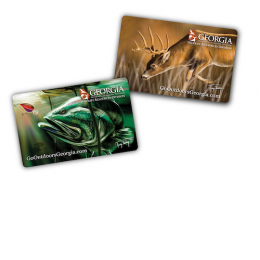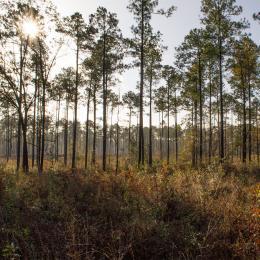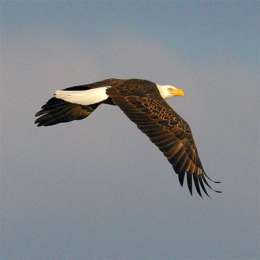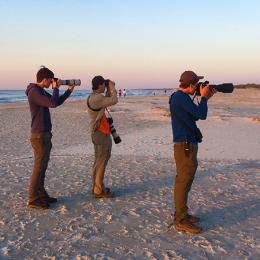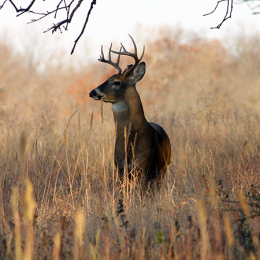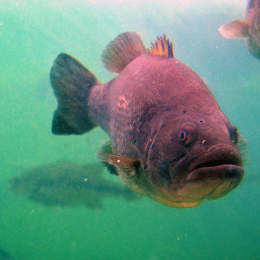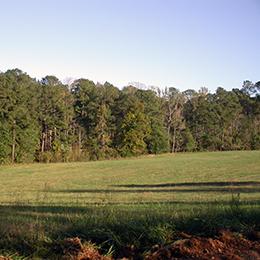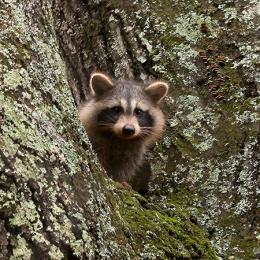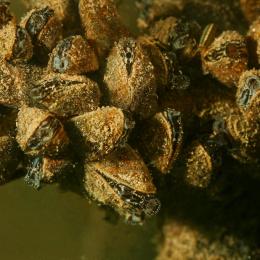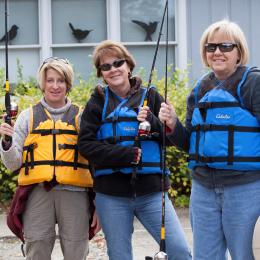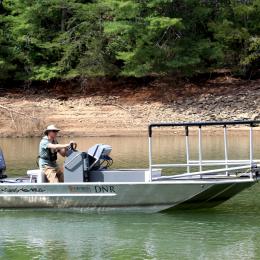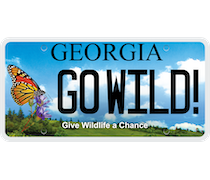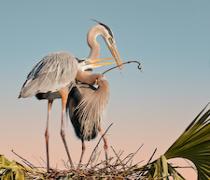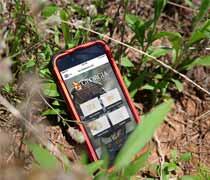Animals in the Classroom
The use of animals in the classroom, either alive or preserved, gives the Georgia educator exciting opportunities to teach. However, many laws and regulations must be observed. The various rules concern:
- Collection, possession and exhibition of specimens
- Facility and housing requirements
- Handling and care
Familiarity with a few basic legal definitions is crucial to a thorough understanding of wildlife laws. Here are some basic definitions.
- Wildlife: refers to those species of animals (mammals, birds, fish, amphibians, reptiles, crustaceans, and mollusks) indigenous to Georgia.
- Wild Animal: means any animal not indigenous to (exotics) Georgia and not normally a domesticated species. This group would include practically all exotic animals.
- Domesticated Species: are those animals that have tradition ally lived in a state of dependence on and under the dominion and control of mankind and have been kept as tame pets or livestock. These may be possessed without permits.
Though this information is not an in-depth coverage of the laws and regulations, many of the primary concerns of educators are addressed. Your local conservation ranger or Department of Natural Resources, Wildlife Resources Division office is available to answer your questions. You can find the phone number and address for your local office by selecting your county from the list under 'Send a Letter or Give Us a Call' on any of the menu pages on this site. You can also call the Special Permit Unit at 770-761-3044.
Collecting from the Wild
Georgia Law prohibits the taking of wildlife without proper permits or licenses. Permitted activities would include legal hunting, fishing, and trapping as well as collection through a scientific collection permit. The following exceptions are given in the law, and may be collected by any means, in any number, and at any time: Rats, mice, coyotes, armadillos, groundhogs, beaver, freshwater turtles, venomous snakes, frogs, spring lizards, fiddler crabs, freshwater crayfish, freshwater mussels, and nutria. These species are exempted because they are considered a nuisance or are collected for other reasons (such as fish bait). NOTE: Permits would be required to legally possess live coyotes, armadillos, groundhogs, and beaver. Protected species of turtles, mussels, and other exempted species may not be collected without proper permits.
Possession
Holding wildlife and wild animals is closely regulated in Georgia. Keeping wildlife not legally taken by hunting, fishing, or trapping is allowed under the wildlife exhibition provisions of the law. Educational institutions; state, city, county, or municipal zoos; or transient circuses should apply for a fee-exempt permit from DNRs Special Permit Unit for holding wildlife. Educators may receive this free permit as long as they are acting as an official representative of their educational institution. This provides a good lesson for students about possession of native species and ensures that possession is in compliance with all laws and regulations. In all cases, it is illegal to possess wildlife or parts thereof which were taken contrary to any wildlife laws, rules or regulations.
Teachers should warn students not to approach any injured wildlife or any animal that is behaving abnormally. Wildlife such as bats, bobcats, coyotes, foxes, raccoons and skunks pose a serious risk from rabies. Any injured animal should be immediately turned over to a licensed wildlife rehabilitator who has the proper training and facilities to treat and care for it. The majority of young animals thought to be orphaned are not. The best action in this case is to leave the animal where it was found.
Possession of many wild animals (exotics) by educators requires a wild animal permit. All provisions of the wild animal law (O.C.G.A. §27-5) must be met. Teachers should contact the Special Permit Unit (770/761-3044) for information related to this license. Note: European ferrets may be held without a permit as long as they are neutered and vaccinated for rabies. Usually, those specimens of turtles, snakes, and other animals available in Georgia pet stores are legal as well.
Birds, Feathers and Nests
All species of birds encountered in the wild in Georgia are protected by state and federal laws except English sparrows, European starlings, and pigeons. Birds not otherwise regulated as a game bird, a nuisance species, or a threatened or endangered species are protected under the Migratory Bird Treaty Act. The Act also prohibits collecting any bird feathers or nests unless specifically allowed under the terms of a salvage permit, a falconry permit or a raptor propagation permit. Any conservation ranger may authorize the possession and mounting of salvaged birds for use in educational institutions.
A Note about Releasing Animals
Once an animal has been kept in captivity for any length of time, its chances of surviving when released into the wild are very nominal. The time it takes for an animal to adjust to its new environment is longer than the time it takes to be preyed upon by a predator, succumb to disease, or die of starvation or thirst. Also, captive animals are more likely to contract diseases that could be spread to their wild counterparts. For these reasons, it is unlawful to liberate wildlife in the state without a wildlife liberation permit.
Do
- Keep records of any animal purchase or any specimen donated to your school.
- Teach your students not to collect wildlife, feathers, bones, etc. Encourage them to observe wildlife in its natural setting.
- Call the Georgia Wildlife Resources Division for specific information or to answer any questions.
- Avoid any wildlife that is easily approached or behaving abnormally.
Don't
- Collect or buy native wildlife.
- Release captive animals to the wild.




